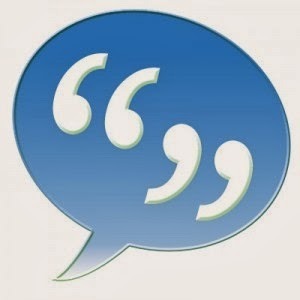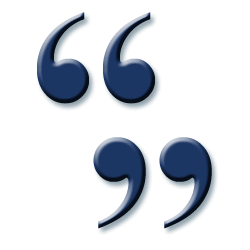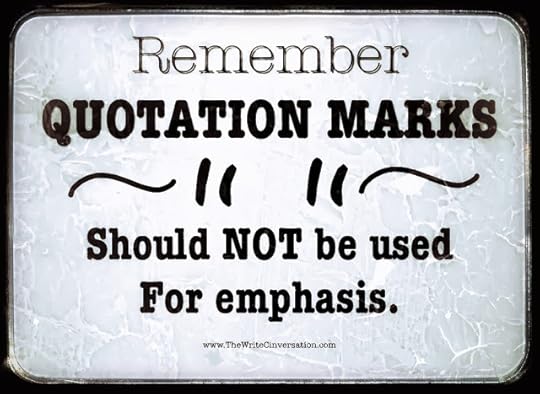Business Basics for Today’s Writer—Learn the CORRECT Way to Use Quotation Marks
by Edie Melson
 I don’t do this often, but sometimes my inner editor just can’t take it anymore. So today I’m letting her loose with a personal rant about quotation marks. And we're begging you all to take a few moments, and learn the correct way to use quotation marks.
I don’t do this often, but sometimes my inner editor just can’t take it anymore. So today I’m letting her loose with a personal rant about quotation marks. And we're begging you all to take a few moments, and learn the correct way to use quotation marks.
HINT: Quotations marks are not to EVER be used for emphasis—more on that later.
Quotation Mark Basics
 Usage OneQuotation marks are used to denote the spoken words in a dialogue. They are not used for an internal dialogue (thoughts).
Usage OneQuotation marks are used to denote the spoken words in a dialogue. They are not used for an internal dialogue (thoughts).
When you are writing dialogue, the punctuation marks go inside the quotation marks.
Example:“It’s a beautiful day outside,” said Tammie.
I’m not going to give you all the ins and outs of correctly formatting dialogue because I’ve already done that on the post, FictionTechniques for Non-fiction Writers—Write Dialogue Correctly.
Usage TwoQuotation marks are used within a sentence to denote a word-for-word phrase taken from somewhere else. This is used primarily in research writing.
Example:As Susan always reminded us, “pretty is as pretty does.”
 Usage ThreeQuotation marks are used for titles of shorter works. Longer works are denoted by italics. How do you tell the difference? Here’s a good rule of thumb. If it’s the piece of a whole, use quotes.
Usage ThreeQuotation marks are used for titles of shorter works. Longer works are denoted by italics. How do you tell the difference? Here’s a good rule of thumb. If it’s the piece of a whole, use quotes.
Example:A song would be in quotes, but the album would be in italics.
Usage FourQuotation marks can be used to express irony.
Example:My dog Jake was really “sad” when I dropped raw hamburger on the kitchen floor.
Needless to say, he was thrilled when I dropped raw hamburger on the kitchen floor.
INCORRECT USAGE The fourth usage for quotation marks has led to a lot of misuse—that of placing quotes around a word the author wants to emphasize.
The fourth usage for quotation marks has led to a lot of misuse—that of placing quotes around a word the author wants to emphasize.
I once saw the following sign:
“FREE”Writers Workshop“ALL” writers welcome
The person who put up the sign wanted to emphasize the words FREE and ALL. What they were doing was telling those who read the sign that the workshop wasn’t free and there were some writers who wouldn’t be welcome. YIKES!
I also see this a lot in blogging.
Here’s an example:“Wisdom” is the word I’ve chosen to celebrate this coming year.
What the blogger above is actually saying is that the word for the coming year is anything “but” wisdom. (Did you catch the mistake in this sentence too?)
The correct way to emphasize a word is to put it in italics. You can also use all caps and/or bolding.
Example:Wisdom is the word I’ve chosen to celebrate this coming year.
What the blogger above is actually saying is that the words for the coming year is anything but wisdom.
This post may seem like nitpicking, but truthfully our knowledge about craft says a lot about our commitment to professionalism.
I remind writers that this is a great time to have chosen writing as a career. BUT that also means there's lots of competition out there. Anything you can do to prove your excellence will help you to stand out in the crowd—in a good way.
Because really, do you want something you wrote to end up on one of my favorite blogs, The Blog of Unnecessary Quotation Marks?

Do you have a quotation mark question? Or have you seen a funny misusage of quotes? Share them in the comments section below.
And don't forget to join the conversation!Blessings,Edie
Tweetables
Remember, quotation marks should NOT be used for emphasis! (Click to Tweet)
Stop quotation mark abuse! Learn how to use them correctly. (Click to Tweet)
 I don’t do this often, but sometimes my inner editor just can’t take it anymore. So today I’m letting her loose with a personal rant about quotation marks. And we're begging you all to take a few moments, and learn the correct way to use quotation marks.
I don’t do this often, but sometimes my inner editor just can’t take it anymore. So today I’m letting her loose with a personal rant about quotation marks. And we're begging you all to take a few moments, and learn the correct way to use quotation marks.HINT: Quotations marks are not to EVER be used for emphasis—more on that later.
Quotation Mark Basics
 Usage OneQuotation marks are used to denote the spoken words in a dialogue. They are not used for an internal dialogue (thoughts).
Usage OneQuotation marks are used to denote the spoken words in a dialogue. They are not used for an internal dialogue (thoughts).When you are writing dialogue, the punctuation marks go inside the quotation marks.
Example:“It’s a beautiful day outside,” said Tammie.
I’m not going to give you all the ins and outs of correctly formatting dialogue because I’ve already done that on the post, FictionTechniques for Non-fiction Writers—Write Dialogue Correctly.
Usage TwoQuotation marks are used within a sentence to denote a word-for-word phrase taken from somewhere else. This is used primarily in research writing.
Example:As Susan always reminded us, “pretty is as pretty does.”
 Usage ThreeQuotation marks are used for titles of shorter works. Longer works are denoted by italics. How do you tell the difference? Here’s a good rule of thumb. If it’s the piece of a whole, use quotes.
Usage ThreeQuotation marks are used for titles of shorter works. Longer works are denoted by italics. How do you tell the difference? Here’s a good rule of thumb. If it’s the piece of a whole, use quotes. Example:A song would be in quotes, but the album would be in italics.
Usage FourQuotation marks can be used to express irony.
Example:My dog Jake was really “sad” when I dropped raw hamburger on the kitchen floor.
Needless to say, he was thrilled when I dropped raw hamburger on the kitchen floor.
INCORRECT USAGE
 The fourth usage for quotation marks has led to a lot of misuse—that of placing quotes around a word the author wants to emphasize.
The fourth usage for quotation marks has led to a lot of misuse—that of placing quotes around a word the author wants to emphasize. I once saw the following sign:
“FREE”Writers Workshop“ALL” writers welcome
The person who put up the sign wanted to emphasize the words FREE and ALL. What they were doing was telling those who read the sign that the workshop wasn’t free and there were some writers who wouldn’t be welcome. YIKES!
I also see this a lot in blogging.
Here’s an example:“Wisdom” is the word I’ve chosen to celebrate this coming year.
What the blogger above is actually saying is that the word for the coming year is anything “but” wisdom. (Did you catch the mistake in this sentence too?)
The correct way to emphasize a word is to put it in italics. You can also use all caps and/or bolding.
Example:Wisdom is the word I’ve chosen to celebrate this coming year.
What the blogger above is actually saying is that the words for the coming year is anything but wisdom.
This post may seem like nitpicking, but truthfully our knowledge about craft says a lot about our commitment to professionalism.
I remind writers that this is a great time to have chosen writing as a career. BUT that also means there's lots of competition out there. Anything you can do to prove your excellence will help you to stand out in the crowd—in a good way.
Because really, do you want something you wrote to end up on one of my favorite blogs, The Blog of Unnecessary Quotation Marks?

Do you have a quotation mark question? Or have you seen a funny misusage of quotes? Share them in the comments section below.
And don't forget to join the conversation!Blessings,Edie
Tweetables
Remember, quotation marks should NOT be used for emphasis! (Click to Tweet)
Stop quotation mark abuse! Learn how to use them correctly. (Click to Tweet)
Published on November 20, 2013 01:00
No comments have been added yet.



